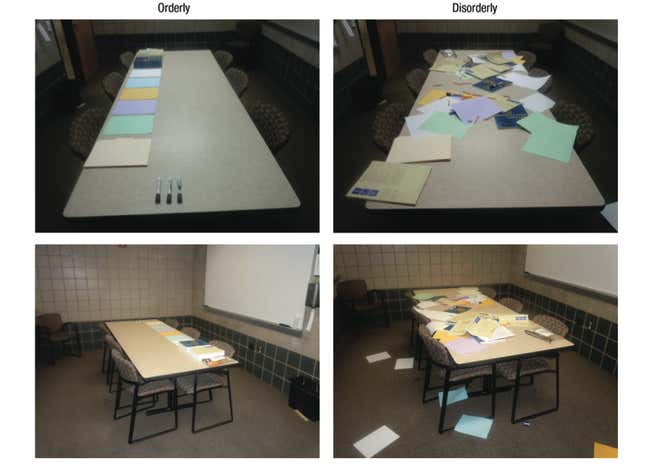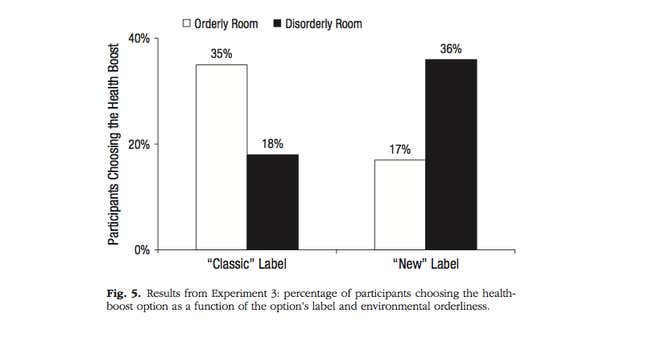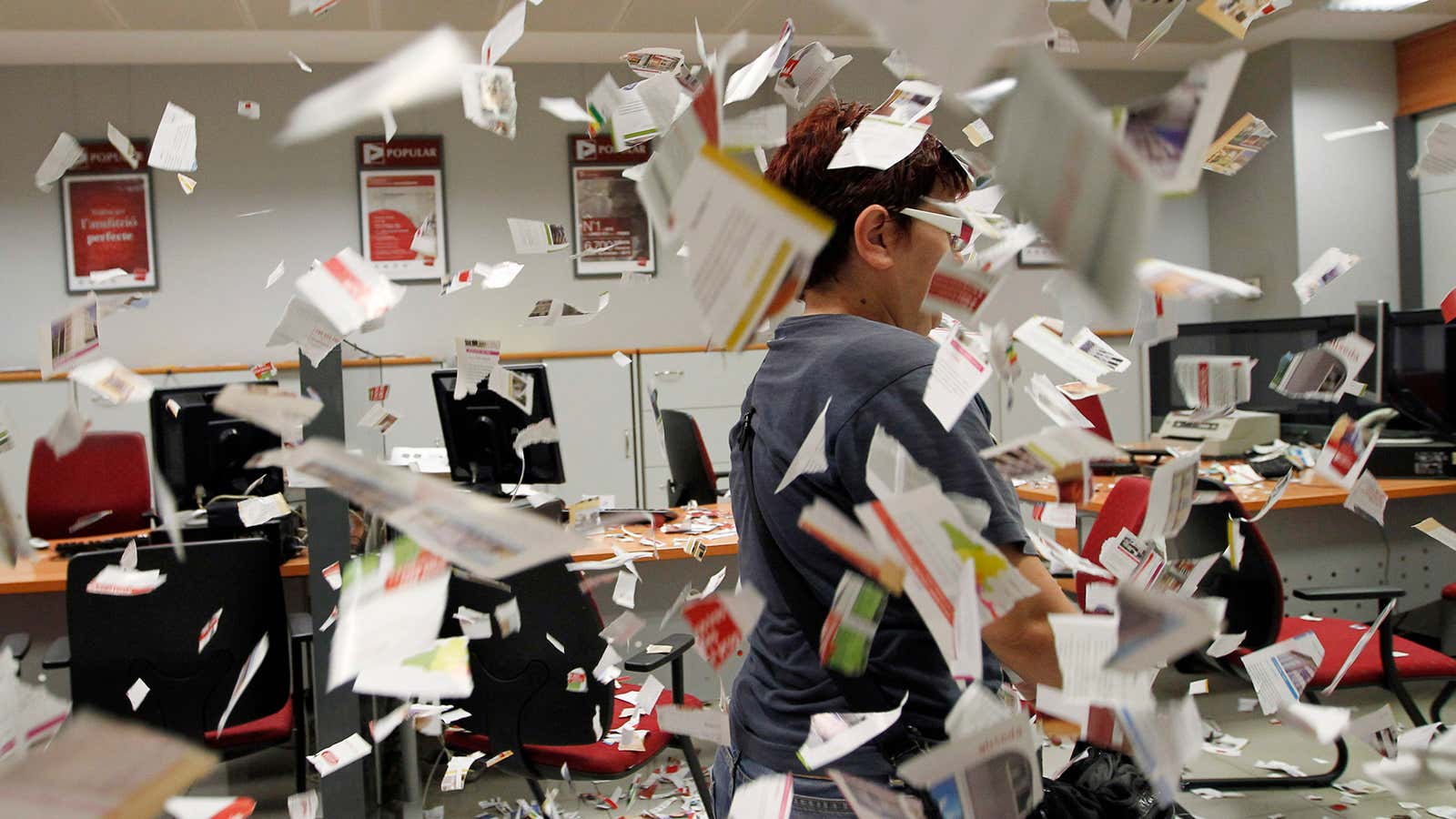A neat, orderly workspace may encourage generosity and generally “good” behavior, but a messy desk will foster your creativity. While it’s no surprise that keeping your pens lined up will make you a more efficient worker, a new study may be the first research to show that disorder can also have a positive influence on workplace behavior. Don’t go knocking your pencil holder over for the heck of it, but it seems that a little chaos might be what workers need to get their creative juices flowing.
Following the broken windows theory, which suggests that visible disorder leads to increased destructive behavior (in other words, a single broken window left unfixed will lead to many more) the traditional school of thought suggests that neat workspaces are the way to go. But since order and disorder both exist in nature, researchers at the University of Minnesota hypothesized that chaos could sometimes be beneficial. Because disorder is linked to deviation from normal behavior, they sought out to prove that messy environments can boost creativity. The study is small, but the results still show a clear trend.

The researchers staged three experiments, each involving two rooms that were identical save for their messiness. In the first, participants filled out a 10-minute survey before being asked to donate part of their payment for it to a charity, and were then offered either a chocolate bar or an apple on their way out. As expected, those in the orderly room were more likely to donate something—82% vs. 47%—and more likely to pick the apple. In the second experiment, researchers told participants to imagine that a company wanted to create new uses for ping-pong balls, and asked them to list up to 10 ideas. While participants in both rooms produced the same number of responses on average, the ideas from the messy room were rated as significantly more “creative” by an outside panel of two evaluators. The last experiment presented participants with a menu for smoothies and gave them a choice of three “boosts,” with the health boost labeled as either “classic” or “new.” People were more likely to go for the health boost with a “new” label when they were in the messy room, and the opposite was true for those in the clean one.

“Prior work has tended to characterize disorderly environments as capable of producing wild, harmful, or bad behavior,” the researchers wrote, “and orderly environments as evoking honesty, pro-sociality, and goodness. The results of our experiments suggest that the effects of physical orderliness are broader and more nuanced than that. Disorderly environments seem to inspire breaking free of tradition, which can produce fresh insights. Orderly environments, in contrast, encourage convention and playing it safe. Such tendencies can imply good, bad, or simply neutral consequences depending on the context.”
So whether your desk should be messy or neat really depends on what kind of work you want to produce. The next time you go to clean up your workspace, remember that you might be stifling your own genius.





